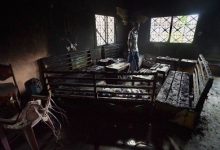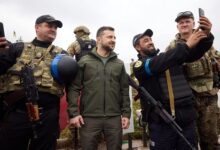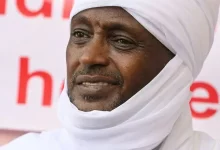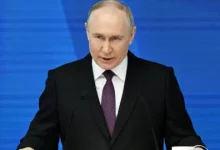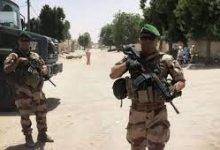
Israel’s military is evacuating 28 communities near the northern border with Lebanon because of escalating hostilities with Hezbollah militants.
An Israeli civilian and a soldier were killed on Sunday, when anti-tank missiles fired from Lebanon hit one of the villages and a military post.
The military said it struck Hezbollah military sites in response.
It also accused the group’s backer, Iran, of ordering attacks in an effort to distract Israel from the Gaza war.
Iran meanwhile warned Israel of the risk of a regional conflict if it continued attacking the Palestinian territory in retaliation for the deadly assault by the militant group, Hamas, earlier this month.
Hezbollah is Lebanon’s most powerful military force and has long-range rockets at its disposal that could strike deep into Israeli territory. It fought a month-long war with Israel in 2006.
During a visit to a community co-ordination centre in the northern town of Shlomi on Monday, Israeli government minister, Benny Gantz, was asked by the BBC whether he thought there would be another war with Hezbollah.
“I hope for them not, but we do all the preparations,” he replied.
The IDF announced on Monday morning that it was implementing an emergency plan to evacuate all civilians living up to 2km (1.2 miles) from the Lebanese border and put them up in state-funded guest houses.
A spokesman said the evacuation was a precaution to “reduce harm to civilians and enable the IDF freedom of action if it is required”.
However, several border villages are already three-quarters empty or more.
Residents told the BBC that families had not waited for the official order, packed up their things and taken their children south to safety.
In many cases, the only people left in the villages now are soldiers and members of local security teams who stayed behind to help them.
The communities are so close to the border that you can see the fortified fence built by Israel along it. In some of them, you can also see the Hezbollah observation posts on the other side. —BBC

